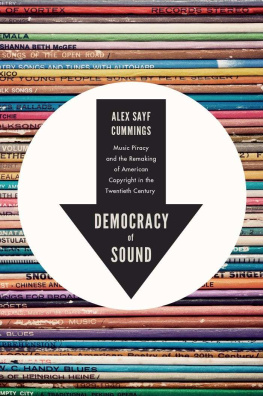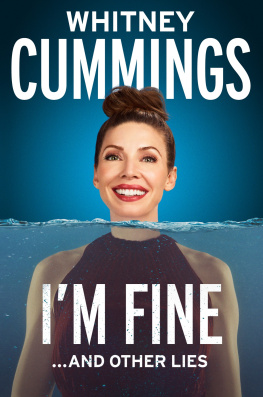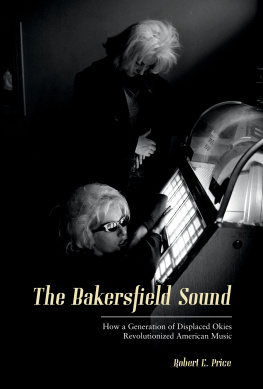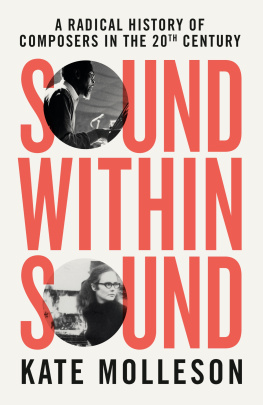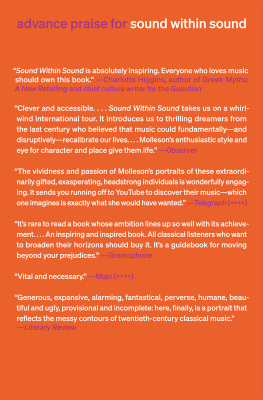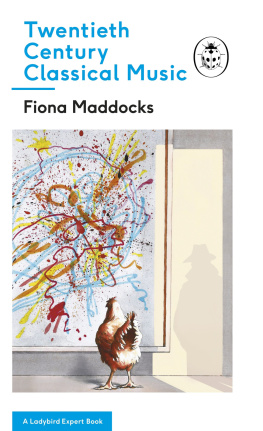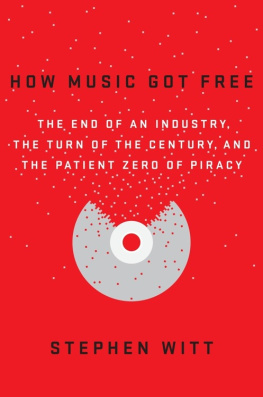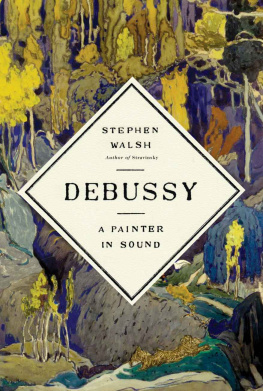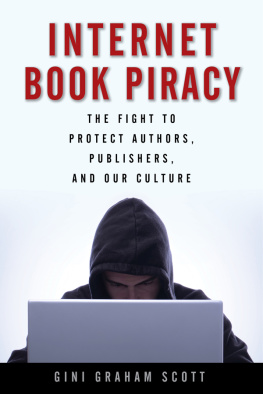Cummings - Democracy of Sound: Music Piracy and the Remaking of American Copyright in the Twentieth Century
Here you can read online Cummings - Democracy of Sound: Music Piracy and the Remaking of American Copyright in the Twentieth Century full text of the book (entire story) in english for free. Download pdf and epub, get meaning, cover and reviews about this ebook. year: 2013, publisher: Oxford University Press, USA, genre: Romance novel. Description of the work, (preface) as well as reviews are available. Best literature library LitArk.com created for fans of good reading and offers a wide selection of genres:
Romance novel
Science fiction
Adventure
Detective
Science
History
Home and family
Prose
Art
Politics
Computer
Non-fiction
Religion
Business
Children
Humor
Choose a favorite category and find really read worthwhile books. Enjoy immersion in the world of imagination, feel the emotions of the characters or learn something new for yourself, make an fascinating discovery.
- Book:Democracy of Sound: Music Piracy and the Remaking of American Copyright in the Twentieth Century
- Author:
- Publisher:Oxford University Press, USA
- Genre:
- Year:2013
- Rating:4 / 5
- Favourites:Add to favourites
- Your mark:
- 80
- 1
- 2
- 3
- 4
- 5
Democracy of Sound: Music Piracy and the Remaking of American Copyright in the Twentieth Century: summary, description and annotation
We offer to read an annotation, description, summary or preface (depends on what the author of the book "Democracy of Sound: Music Piracy and the Remaking of American Copyright in the Twentieth Century" wrote himself). If you haven't found the necessary information about the book — write in the comments, we will try to find it.
Democracy of Sound: Music Piracy and the Remaking of American Copyright in the Twentieth Century — read online for free the complete book (whole text) full work
Below is the text of the book, divided by pages. System saving the place of the last page read, allows you to conveniently read the book "Democracy of Sound: Music Piracy and the Remaking of American Copyright in the Twentieth Century" online for free, without having to search again every time where you left off. Put a bookmark, and you can go to the page where you finished reading at any time.
Font size:
Interval:
Bookmark:
Democracy of Sound
Music Piracy and the Remaking of American
Copyright in the Twentieth Century
ALEX SAYF CUMMINGS


Oxford University Press is a department of the University of Oxford.
It furthers the Universitys objective of excellence in research, scholarship,
and education by publishing worldwide.
Oxford New York
Auckland Cape Town Dar es Salaam Hong Kong Karachi
Kuala Lumpur Madrid Melbourne Mexico City Nairobi
New Delhi Shanghai Taipei Toronto
With offices in
Argentina Austria Brazil Chile Czech Republic France Greece
Guatemala Hungary Italy Japan Poland Portugal Singapore
South Korea Switzerland Thailand Turkey Ukraine Vietnam
Oxford is a registered trademark of Oxford University Press
in the UK and certain other countries.
Published in the United States of America by
Oxford University Press
198 Madison Avenue, New York, NY 10016
Oxford University Press 2013
All rights reserved. No part of this publication may be reproduced, stored in a
retrieval system, or transmitted, in any form or by any means, without the prior
permission in writing of Oxford University Press, or as expressly permitted by law,
by license, or under terms agreed with the appropriate reproduction rights organization.
Inquiries concerning reproduction outside the scope of the above should be sent to the
Rights Department, Oxford University Press, at the address above.
You must not circulate this work in any other form
and you must impose this same condition on any acquirer.
Library of Congress Cataloging-in-Publication Data
Cummings, Alex Sayf.
Democracy of sound : music piracy and the remaking of American copyright in the twentieth century /
Alex Sayf Cummings.
pages cm
Includes bibliographical references and index.
ISBN 9780199858224
1. CopyrightMusicUnited StatesHistory20th century. 2. Piracy (Copyright)United
StatesHistory20th century. I. Title.
KF3035.C86 2013
346.730482dc23
2012041759
1 3 5 7 9 8 6 4 2
Printed in the United States of America
on acid-free paper
For Sandy, Barbara, and Darrell
This project has come a long way since Joshua Wright, Antonio Del Toro, and I discussed the possibilities of file sharing and free media in the summer of 2004. For most of our lives, access to knowledge had been largely circumscribed by the ability to pay for it. I remembered how my mother, a single parent on a tight budget, had purchased volumes of an encyclopedia series at the grocery store when I was young, in the hope of providing me with a valuable resource; we only made it through the letter D, but I still spent hours thumbing through the volumes we had and learned a lot about Buddhism anyway. The idea that music, history, science, and so many other things of value and merit could be freely available to almost everyone all the time was a remarkable prospect. Wikipedia represented this new world as much as Napster, the music file-sharing network; to me, learning from a free encyclopedia did not seem so different from downloading free songs. This book is a product of its time, a moment in the early twenty-first century when all the structures of publishing, recording, and broadcasting were in flux. Its strengths belong to the many brilliant people who helped me write it; its shortcomings derive from the limits of my own historical vision.
Anyone who writes a book, especially a first one, probably feels like it took a cast of thousands to do so. This volume is no exception. First and foremost, Betsy Blackmar contributed to the doctoral thesis with her tirelessly inquisitive nature. She loved to give me a hard time, as she put it, and she did so with a smile. Whatever depth or insight this work might possess owes in large part to her. My other mentor was Barbara Fieldsa fierce critic, kindred spirit, and valued ally since I first came to New York from Charlotte. I could always turn to her as a fellow Southerner in the big city. Her impatience with pompous, unreflective jargon dissuaded me from the temptation to lean on fuzzy language, while her intellectual honesty and defiance of conventional wisdom will always be an inspiration. The dissertation also benefited from the perceptive input of Sarah Phillips, who encouraged me through the first seminar paper that launched the project, as well as Brian Larkin, Andie Tucher, and Eric Foner. And none of it might have been written if not for the inspiring scholars I encountered at the University of North Carolina at Charlotte, including Julie Hicks, Sam Watson, Jeffrey Meyer, John Flower, Kathleen Donohue, and Cynthia Kierner.
No historian can succeed without the generosity and good will of numerous archivists, librarians, and other knowledgeable and helpful professionals. Throughout this project, I have turned to the incomparable Dan Morgenstern of the Institute of Jazz Studies in Newark, who regaled me with stories of his rich life experiences with the musicians, collectors, and other colorful characters who populate the history of music in the twentieth century. At Middle Tennessee State Universitys Center for Popular Music, I was privileged to receive invaluable assistance from Lucinda Cockrell, Martin Fisher, and Grover Baker, and Mary Lynn Cargill of Columbia Universitys Butler Library initiated me into the mysteries of congressional committee reports. The boundless enthusiasm of Bill Schurk led to the discovery of a treasure trove of bootlegs at the Music Library and Sound Recordings Archive of Bowling Green State University, while Susannah Cleveland and the rest of the staff have helped me time and time again.
I would also like to thank the many institutions that provided material support for my research. Columbia Universitys Department of History and Graduate School of Arts and Sciences gave me the opportunity to live in one of the worlds great cities and enjoy access to the finest intellectual resources for five years, and a fellowship from the Consortium for Faculty Diversity allowed me to continue this work for two years as I finished the dissertation. I was fortunate to receive yet another year of support from the American Council of Learned Societies as a postdoctoral fellow, which freed me from the pressures of teaching as I made the most crucial revisions to the manuscript. Several sections of this book have previously appeared in print; I would like to thank the reviewers and editors for their insightful feedback as well as Oxford University Press and the University of Pennsylvania Press for granting permission to reprint them here. Portions of appeared as Collectors, Bootleggers, and the Value of Jazz, 19301952 in Susan Strasser and David Suisman, eds., Sound in the Age of Mechanical Reproduction (Philadelphia: University of Pennsylvania Press, 2009).
Finally, a number of individuals have pushed this project from dissertation to book. Siva Vaidhyanathan, Charlie McGovern, and a third reviewer gave rich, suggestive, and enlightening comments on the manuscript, and my editor Susan Ferber has been a terrific partner in the complex and challenging enterprise of publishing a first book. Elaine Rose kindly took time to discuss the life of her father Boris, a fabled yet little-understood figure, and I cannot stress enough how much I appreciate her sharing her stories and records with me. I would also like to extend my thanks to Bill Golden, Francis Pinckney, George Stephanopoulos, and others who enriched this book by sharing their personal experiences. My friends and fellow scholars have contributed enormously by reading the manuscript and offering insightful suggestions; most notably, Ryan Reft and Joel Suarez have been great friends who endured a series of periodic panics and freakouts with good cheer. I owe a debt of gratitude as well to the wonderful coworkers who have advised and guided me through the early stages of my career, particularly Tom Ellman at Vassar College and Rob Baker at Georgia State. Last but far from least are my familymy mother and stepfather, Sandy and Andy Shepherd, and my grandparents, Barbara and Darrell Cummings, who always encouraged learning and creativity from the earliest age and instilled the belief that a working-class kid could go anywhere and accomplish anything. I would also like to thank my father Taher, stepmother Crystal, and brother Jamaal for all their love and support. Saira Mazhar has been my dearest friend since long before this project began to take shape, and her love has sustained both me and the book as life took us from Karachi to Queens and beyond. I hope she some day gets that nictitating membrane she always wanted.
Next pageFont size:
Interval:
Bookmark:
Similar books «Democracy of Sound: Music Piracy and the Remaking of American Copyright in the Twentieth Century»
Look at similar books to Democracy of Sound: Music Piracy and the Remaking of American Copyright in the Twentieth Century. We have selected literature similar in name and meaning in the hope of providing readers with more options to find new, interesting, not yet read works.
Discussion, reviews of the book Democracy of Sound: Music Piracy and the Remaking of American Copyright in the Twentieth Century and just readers' own opinions. Leave your comments, write what you think about the work, its meaning or the main characters. Specify what exactly you liked and what you didn't like, and why you think so.

